Concordia’s Gina Cody School celebrates equity, diversity and inclusion with a new award and research grant
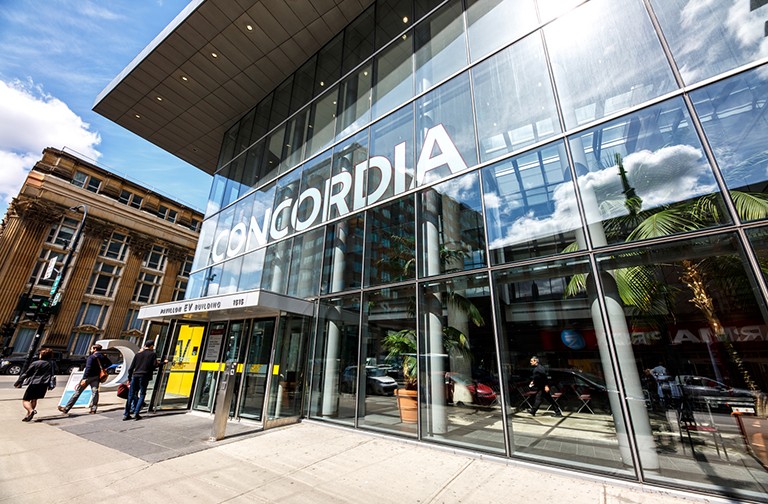
Three community members from Concordia’s Gina Cody School of Engineering and Computer Science are being celebrated for their outstanding contributions to equity, diversity and inclusion (EDI).
Riya Dutta, Mirjam Fines-Neuschild and Carole El Ayoubi are the recipients of the new Gina Cody School EDI Award. It recognizes members of the school for their work in fostering equitable, diverse and inclusive environments through outreach, research and teaching activities.
“Equity, diversity and inclusion are key priorities for us,” says Mourad Debbabi, dean of the Gina Cody School. “The award winners this year have each, in unique ways, demonstrated their dedication to advancing EDI not only for the school but for the university and society at large.”
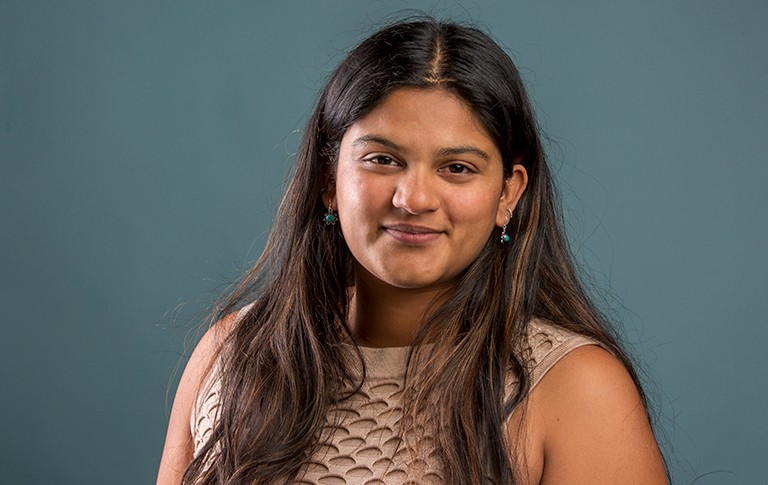 Graduate student in software engineering, Riya Dutta.
Graduate student in software engineering, Riya Dutta.
Forging a future in EDI
Riya Dutta is a graduate student in software engineering. Her thesis aims to reconstruct diversity awareness in the field and create EDI guidelines that software researchers and developers can follow to design more inclusive products.
Dutta has been a long-time advocate for EDI at the Gina Cody School and Concordia. She is the former president of the Women in Engineering student society. There she developed workshops and outreach activities to help current students grow professionally and academically and encouraged countless girls to enter science, technology, engineering and math (STEM) fields.
She also committed herself to the Accessibility Policy Advisory Group at the university, where she helped create more inclusive policies and clarify Concordia’s commitment to accessibility.
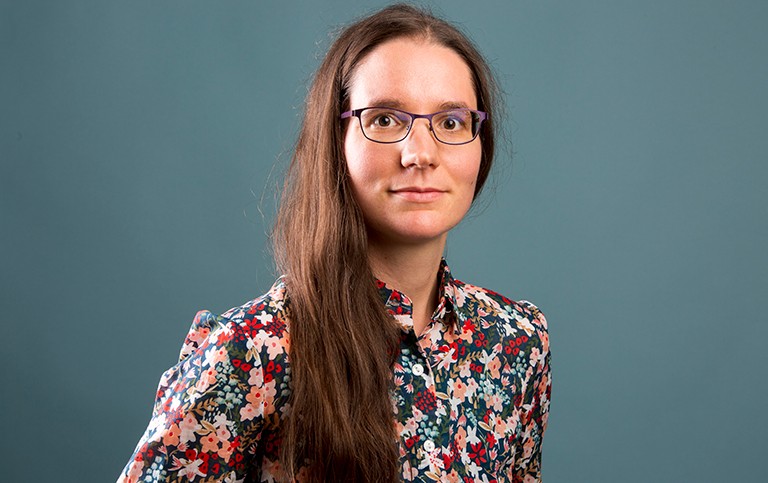 Horizon postdoctoral fellow at Concordia, Mirjam Fines-Neuschild.
Horizon postdoctoral fellow at Concordia, Mirjam Fines-Neuschild.
Paving the way for other students
Mirjam Fines-Neuschild is a Horizon postdoctoral fellow at Concordia. For her current research project she works under the supervision of Tanja Tajmel, associate professor in the Centre for Engineering in Society and Concordia University Research Chair (Tier 2). She mentors master’s students in the EDI Lab and co-supervises a master’s degree student’s research project.
Fines-Neuschild holds an individualized PhD from Université de Montréal in Physics and Communication. Her EDI-focused PhD was the first to come out of the UdeM Department of Physics and has inspired other master’s students to focus their theses on similar issues. Fines-Neuschild’s research examines the views of contemporary scientists on EDI and decolonizing science and engineering.
She has worked on multiple EDI initiatives, notably Parité sciences, a project she co-founded in 2020 whose goal is to achieve gender parity in all bachelor’s programs in STEM in Quebec.
Fines-Neuschild is also a member of the Gina Cody School EDI working group, where she provides insight on the challenges that underrepresented groups in engineering face and the ways of effecting institutional change within a university.
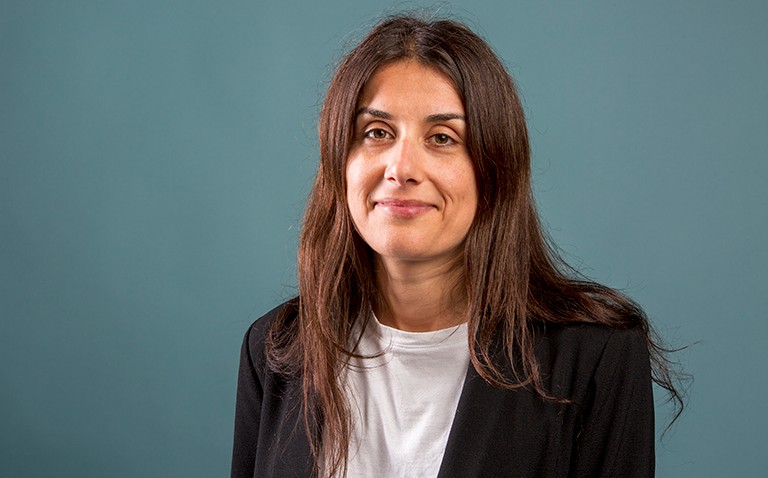 Senior lecturer in the Department of Mechanical, Industrial and Aerospace Engineering, Carole El Ayoubi.
Senior lecturer in the Department of Mechanical, Industrial and Aerospace Engineering, Carole El Ayoubi.
A role model for women in engineering
Carole El Ayoubi is a senior lecturer in the Department of Mechanical, Industrial and Aerospace Engineering. She is also the undergraduate program director for mechanical and aerospace engineering and director of education for the Concordia Institute of Aerospace Design and Innovation.
El Ayoubi is involved in several EDI outreach initiatives that extend beyond the university’s walls. She co-hosts STEAMpunks, a summer day camp for local high school students to apply STEAM (STEM plus the arts) concepts to a sustainability project.
She has also contributed significantly to GirlSET, a summer camp for high school girls to participate in STEM workshops led by faculty members.
El Ayoubi is a member of the Gina Cody School STEM Squad, which provides workshops on coding and robotics to young girls from underserved areas of Montreal by partnering with local NGO Les Scientifines.
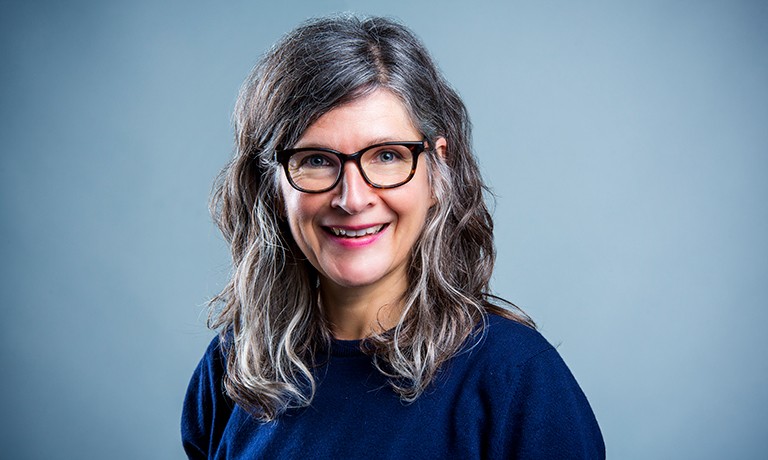 Associate professor in the Centre for Engineering in Society and Concordia University Research Chair, Tanja Tajmel.
Associate professor in the Centre for Engineering in Society and Concordia University Research Chair, Tanja Tajmel.
Decolonizing engineering through research
In addition to the new award, the Gina Cody School EDI Research Grant was launched to support and recognize the research of full-time faculty members on EDI within the context of engineering and computer science.
The grant was awarded to a research group composed of PhD students Ezgi Ozyonum, Tatiana Zanon and Carlos Mometti. They will carry out their work under the direction of Tajmel, who is also special advisor to the dean on equity, diversity and inclusion.
The project aims to support faculty, instructors and students in engineering and computer science who wish to integrate decolonizing perspectives into their teaching.
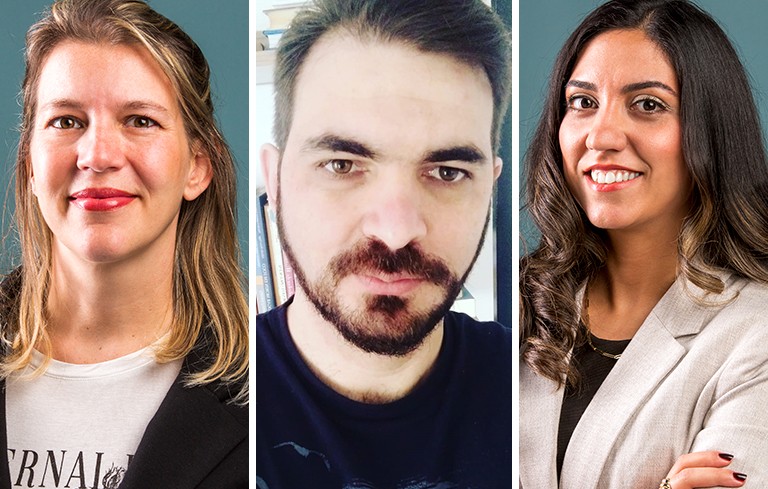 From left: PhD students and grant winners Tatiana Zanon, Carlos Mometti and Ezgi Ozyonum.
From left: PhD students and grant winners Tatiana Zanon, Carlos Mometti and Ezgi Ozyonum.
They’ll begin their work by conducting a review of the main undergraduate engineering and computer science course textbooks to identify and interrupt colonial patterns. From there, they’ll develop a toolkit to help instructors include other resources and pedagogical frameworks.
“These award winners’ contributions to EDI will pave the way toward a more inclusive and accessible environment for current and future students, faculty and staff,” Debbabi adds. “I am proud that the efforts of our colleagues and students are being recognized within our community.”
Learn more about Concordia’s Gina Cody School of Engineering and Computer Science.
Discover the Gina Cody School EDI Award and Research Grant.


